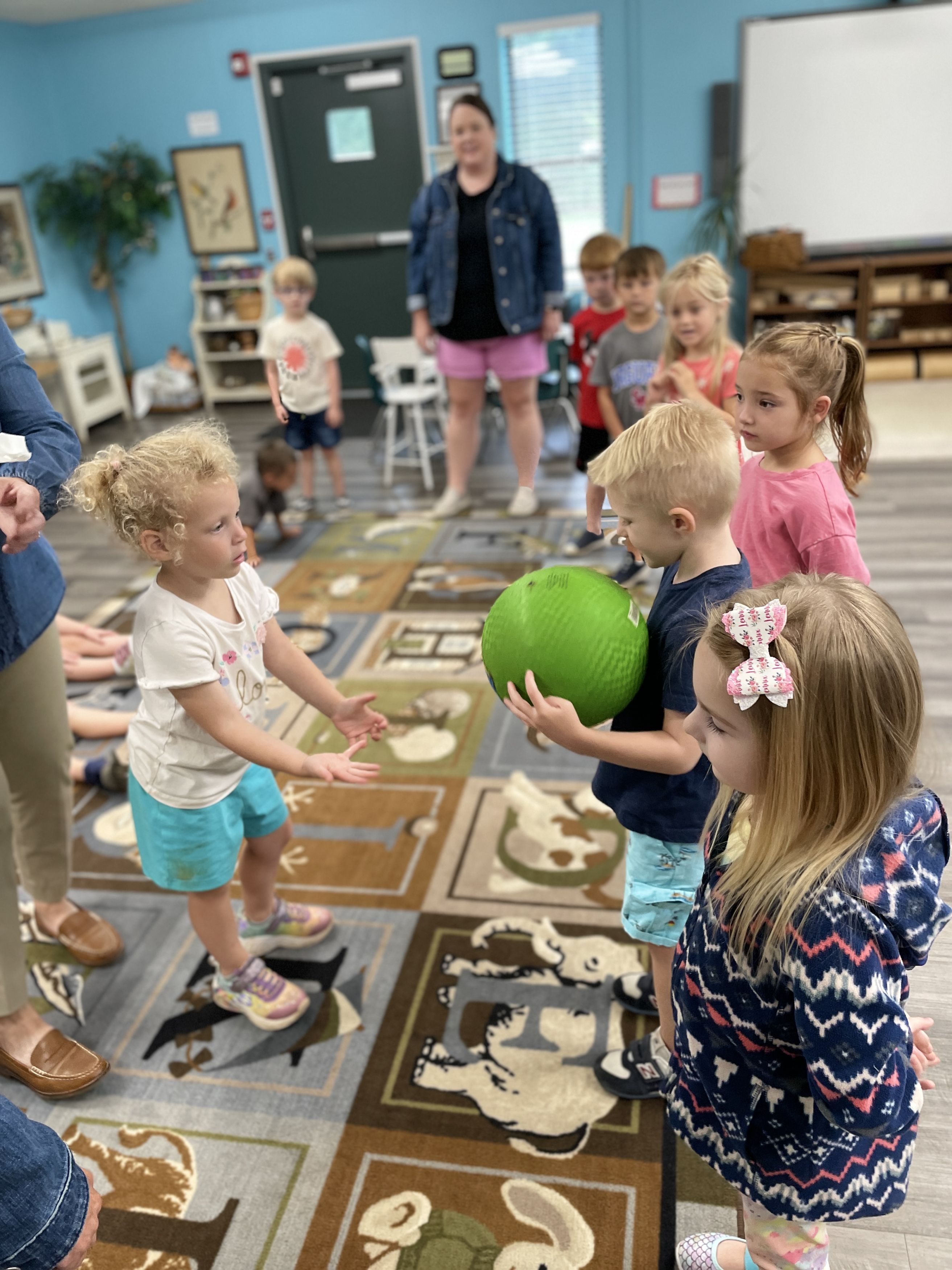Play
Learning happens naturally through play. Our junior kindergarten class supports diverse forms of play, including large and small motor play, imaginative play, rough and tumble play, and rules-based play. Throughout the day, children are given the chance to initiate play and exploratory learning. These experiences allow each child to become skilled in the art of self-education and self-regulation.
Social Skills and Work Habits
Without a strong foundation in social skills, children entering kindergarten will be ill-equipped to participate in learning opportunities. Our junior kindergarten classroom environment allows children to learn to follow directions, listen, interact appropriately with other cildren and take care of their personal needs. Through daily experiences, children build the foundation for skills that will be used in kindergarten and throughout one's life.
Language Arts
The path to reading success begins in the junior kindergarten class. Students are introduced to the basics of literacy, the building blocks they need to develop a solid reading foundation. The children are presented with language experiences through finger plays, rhymes, songs and poems. Comprehension activites are included in each lesson to help promote understanding of quality literature. In addition, phonological, phonemic, and print awareness activites are incorporated into each language lesson. Using the skills learned during these activites, along with sight word knowledge, children will eventually combine their knowledge of print with the sound structure of language to break the code of reading.
Handwriting
Can children learn handwriting by singing and dancing? In our junior kindergarten class they do. Using the Handwriting Without Tears program, music and movement is used to bring lessons to life. Children need to develop both fine and gross motor skills to be able to write. Each day, readiness and writing lessons teach body awareness, cooperation, taking turns, listening, crayon grip, drawing, building, letter and number recognition and capital letter and number formation. Hands-on teaching materials and strategies make learning fun and easy for our junior kindergarten students.
Social Studies
Beginning with a look at what is most familiar to the children, we move to exploring their families, and then into their neighborhoods and communities. Having gained confidence in their ability to contribute knowledge to a lesson, the students are now ready to learn about the world, significant historical events, famous people and symbols of our country. Engaging units of studies include: Cities and Towns; Transportation; Pilgrims; George Washington; Abraham Lincoln; Betsy Ross; and the Farm and the Jungle.
Math
In the junior kindergarten class, mathematics is not limited to a specific "math time." Using the Everyday Mathematics Program, math is integrated into art and music activities, circle time, block building, games and all other daily routines that are part of our regular junior kindergarten day. Through daily activities, children will be exposed to numeration, measurement, geometry, number operations, patterns and functions, money, clocks and calendars, data and chance. To coincide with children's development, these activities begin at a simple level and increase in complexity with children's experiences.
Science
Our science program introduces children to a systematic way of looking at, describing and explaining the world around them. They are also introduced to the tools they will need to do so. Through classroom experiences and field trips, children are given many opportuniites for systematic observation and hands-on investigation of both the living and the material world. Engaging units of study include: My Body; Magnets; Water; The Five Senses; Air, Light and Sun.
